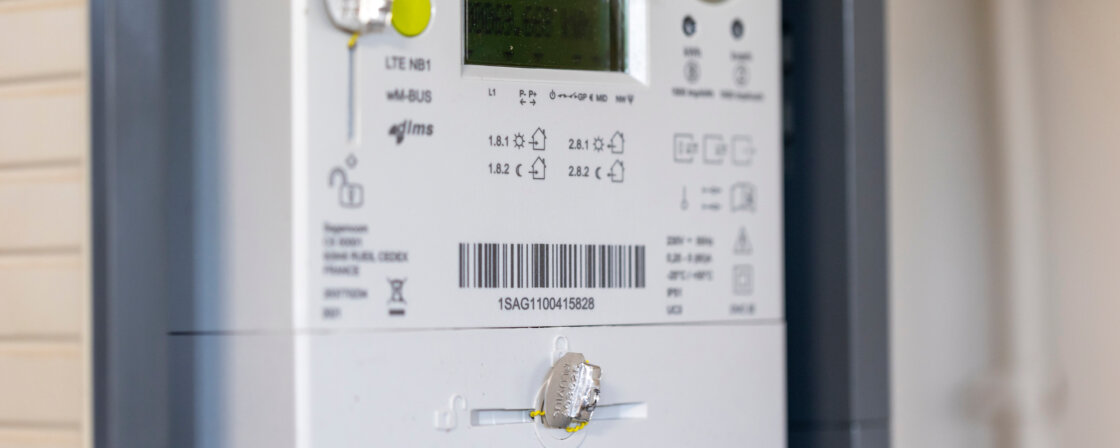What payments can be left to the tenant?
There are a number of payments associated with the use of the apartment. However, you cannot get rid of all of them as a landlord. For example, you must not transfer the obligation to pay water and sewerage charges and hot water from the heating company. However, you have a free hand when it comes to electricity and gas. It is up to you.
Are you solving a similar problem?
Do you want help with the lease?
By drawing up a good lease agreement you will save yourself most of the problems, whether as a landlord or a tenant. We will draw up or check the lease agreement, or advise on drawing up an amendment to the agreement or terminating the lease. We will handle everything quickly and flawlessly.
I want to consult
- When you order, you know what you will get and how much it will cost.
- We handle everything online or in person at one of our 6 offices.
- We handle 8 out of 10 requests within 2 working days.
- We have specialists for every field of law.
There are basically three options to get a fair electricity and gas bill from the tenant:
- Theenergy can be transferred to the tenant and it is then entirely up to the tenant to deal with the payments, overpayments or underpayments.
- Thetenant’s monthly deposits are estimated and set and after some time after the annual bill is sent by the provider, everything is billed according to the advance payments made.
- Fixed charges are set according to consumption to date and no billing is carried out.
Transfers of energy to the tenant
In the case of long-term and medium-term leases , it is worthwhile for landlords to transfer the electricity and gas payments to the tenant. This removes the energy spent on communicating with the utility supplier, checking the bill they have sent you, comparing it with what the tenant has paid in deposits and calculating what they still have to pay or you will be repaying them. Do all this twice if you have a flat that is also connected to gas. And all this with a follow-up argument if the tenant disagrees with your calculation. You will be relieved of a lot of responsibilities and you will be able to leave the worries to the actual user of the flat. On the other hand, you won’t be in control of the payments, so it’s a good idea to do at least a little research and have confidence in the tenant. This way you won’t run the risk of the tenant turning out to be a defaulter and having your electricity disconnected by the supplier.
There’s nothing complicated about the rewrite itself. The ideal is to meet the tenant and together record the current meter readings and sign the meter reading as a sign of agreement. If you trust each other (for example, if you are renting the flat to your brother), it is enough if only one of you takes and writes the reading. However, it is certainly advisable to take a photo of the meter or gas meter and keep the photo as evidence. If you are on two electricity tariffs, be sure to read them both. You can find a form to fill in on your energy provider’s website.
The transfer itself is usually handled online nowadays. The future tenant gives you power of attorney and you can conclude the contracts directly for them, or leave everything to them.
This option has a number of advantages for the landlord, which we have described above. However, it is not worthwhile for short-term leases, where you are renting the apartment for a period of months or even shorter. It would then involve a relatively large amount of bureaucracy. In addition, there is very often a situation where there is a time lag between two tenancies. However, a transfer is also necessary when the lease is terminated and the landlord takes over the lease again.
Tip for article
Tip: The same process awaits us when selling or buying a property. Although it is not necessary to meet together and deal with the energy provider together, many clients choose this option to see for themselves that everything is in order and no bill will appear in their name. If the transfer is being made by the purchaser of the property, they will again need a power of attorney and a meter condition that both parties agree to. The original owner is then signed out of the site and the new owner signed in. It is important to agree at what stage of the transfer this will happen and also to include this in the purchase agreement.
Determining the monthly advances that you will subsequently bill
This option, on the other hand, is ideal for short-term rentals. The property owners base the consumption in the apartment to date, the number of people who have lived there and the deposits set by the provider and then set the deposits in the rental agreement based on these data, which are then billed to the tenant on an annual basis.
The big advantage is that as the owner of the flat or house you have control over the payments, you know that everything is properly paid and you choose the supplier yourself.
The disadvantage can be again more complicated recalculations in case of multiple tenants in one year. However, this cannot be avoided completely. You can calculate the prices yourself by knowing the energy price and the meter reading when the tenant leaves, or you can wait for the annual bill from the supplier.
Another risk can be if the tenant stops paying you rent, including deposits, and you incur further expenses. However, there are always theoretical risks associated with non-payment of rent, regardless of your attitude to energy transfer. So this fact should not play a significant role in your decision.
Tip for article
Tip: The rent is one of the most important parts of the rental agreement. Before signing a lease, you should think carefully about how and how much rent to negotiate and whether and how to increase it in the future. What can the rent include and how can energy prices be taken into account? We look at all this in our next article. And if you’ve already signed a contract but the tenant refuses to pay, we’ll advise you on how to proceed in our article.
Fixed fee setting
In some circumstances this may be the ideal solution, but like all solutions it has its “buts”. Again, it requires a certain amount of trust between both parties to the lease. The landlord will base the current energy consumption in the apartment and its price and estimate the consumption in the future. They take into account the different seasons (especially winter heating), factor everything in, average it all out and then very slightly overestimate it, and anchor the resulting amount as a fixed amount in the lease.
If you choose this option, then apart from the initial calculation, there will be no complicated recalculations of overpayments and underpayments or any administration associated with re-assigning energy to different tenants.
However, nothing is without blemish. The tenant may be worried that the landlord will “stretch” him, so to speak, and significantly overestimate the consumption and the remaining crowns will go into his pocket. It therefore depends on whether the total amount of the rent, including utilities, makes sense and is worthwhile for him. The sword of Damocles will be hanging over the property owner in the form of a profligate tenant who will figuratively speaking turn the apartment into a sauna or a cannabis cultivation facility and thus turn the electricity meter into an unprecedented speed. However, such extremes can possibly be treated in the contract.
Beware that such energy charges can and do have an impact on rental income and subsequent tax obligations (especially VAT registration). This is not a risk in the case of overcharging of deposits, as the deposits are not included in the rental income.
Tip for article
Tip: A power of attorney is a very useful tool that can come in handy when selling a vehicle, picking up mail, dealing with the authorities, or re-writing your utility bills. Are you hesitant about whether one template can be used for all these cases and what exactly a power of attorney must contain? In a separate article, we have prepared a clear guide that answers everything.




